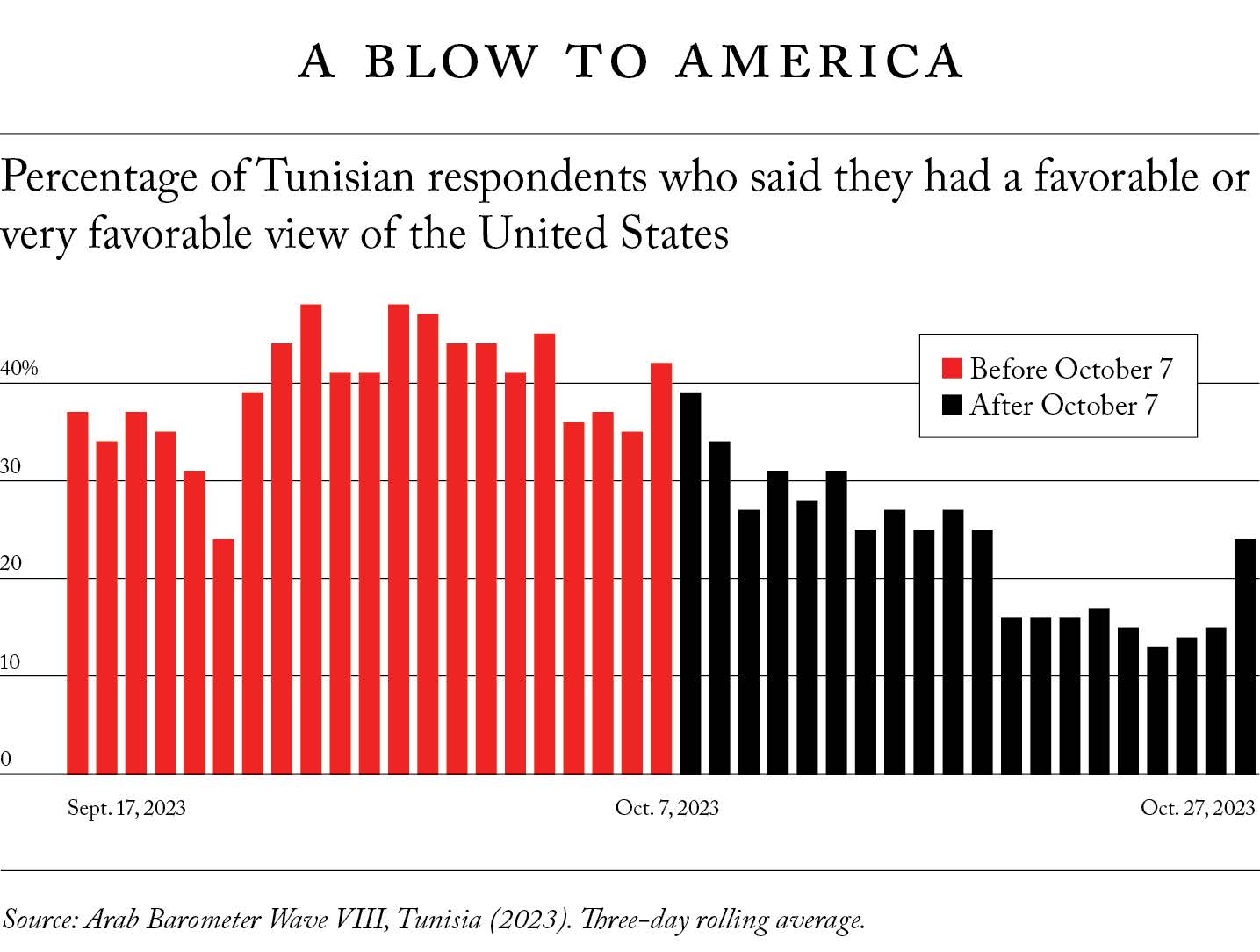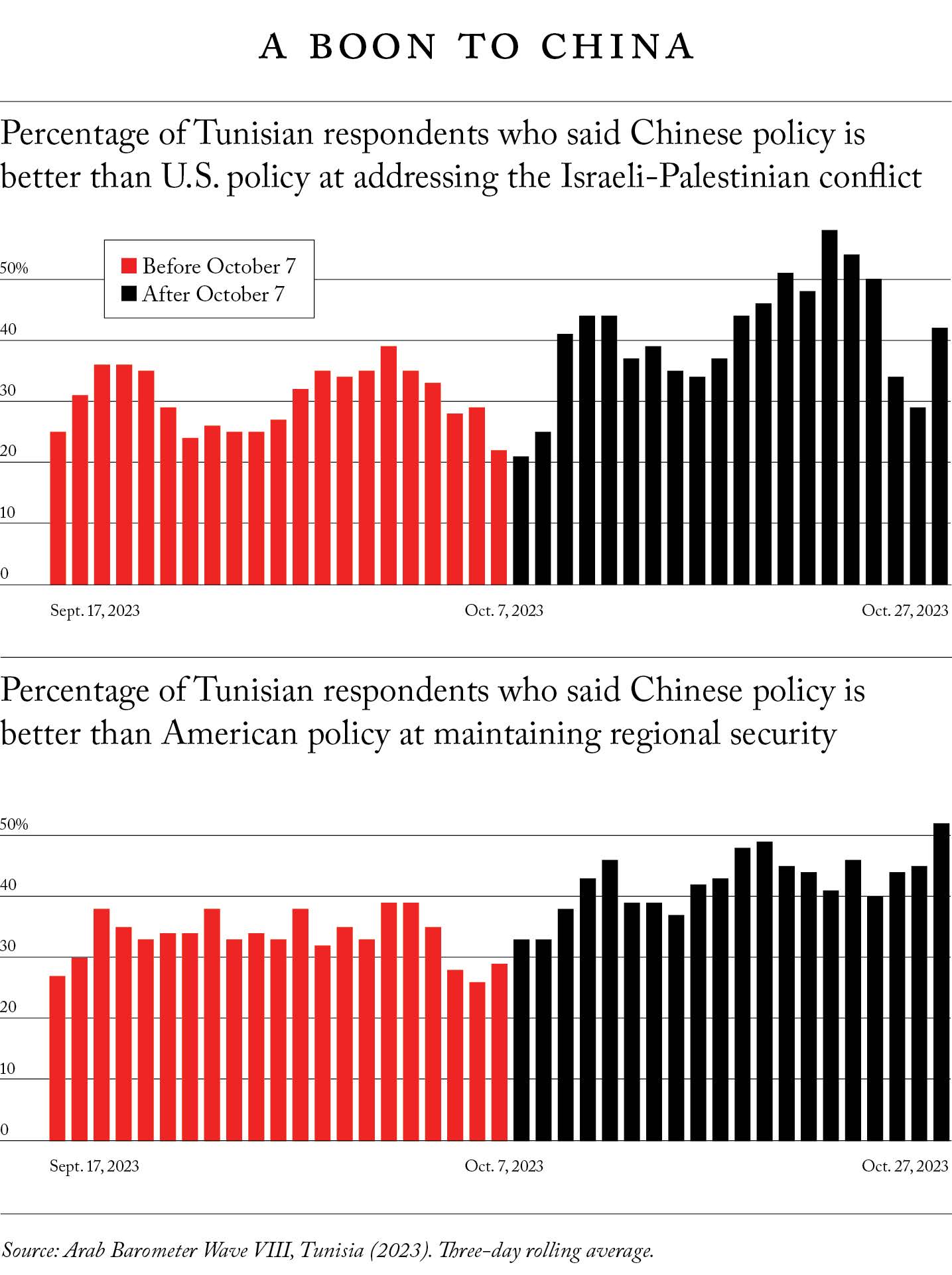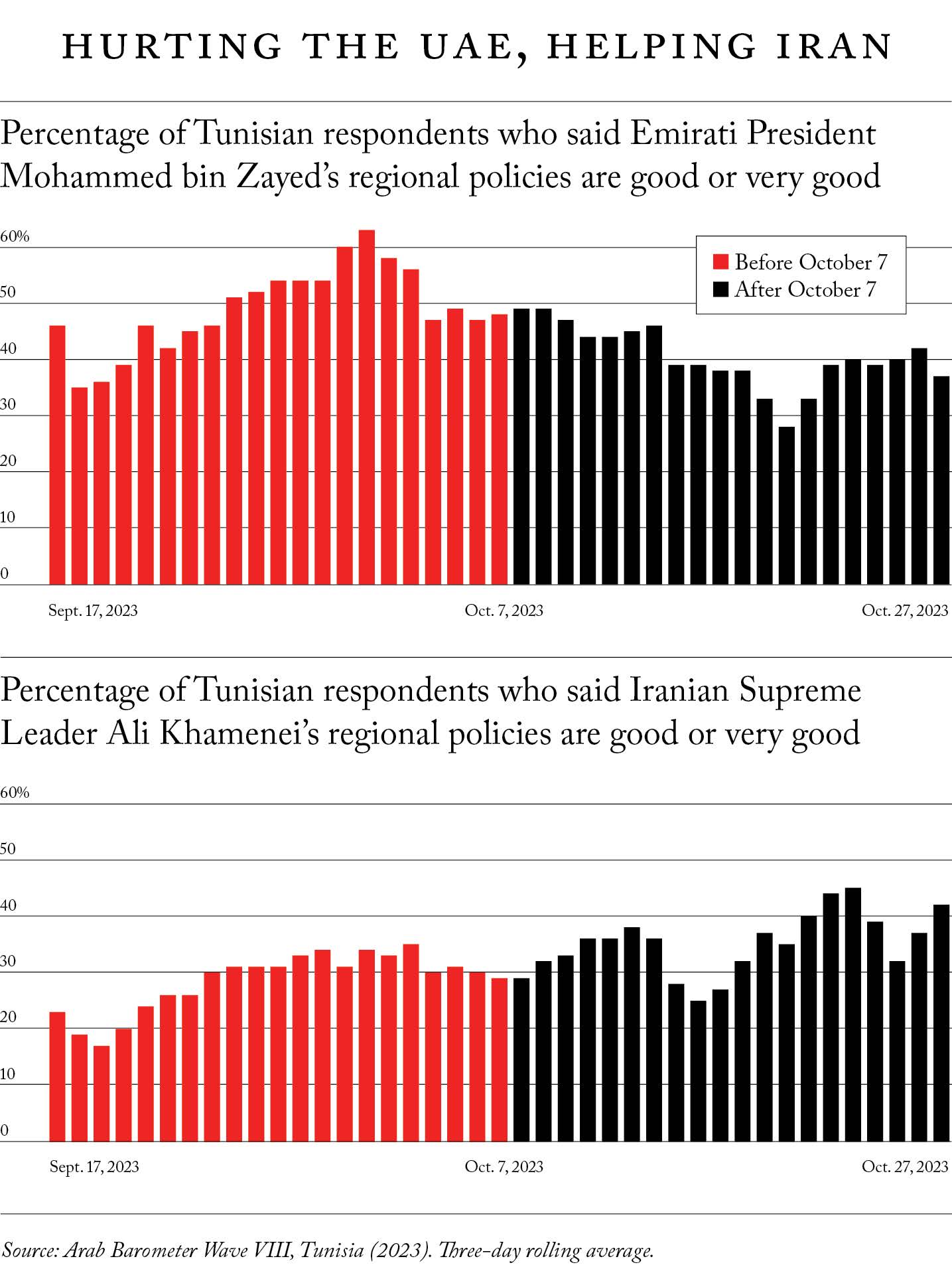Support Is Falling for America and the Two-State Solution—but Rising for Iran and Violent Resistance
Since October 7, the latest onslaught between Hamas and Israel has claimed the lives of more than 15,000 Palestinians and over 1,200 Israelis. Scores more have been injured. The war has displaced more than 1.8 million Palestinians and left the fates of many of Israel’s people unknown; over 100 of those abducted in Israel remain hostages. Fighting has resulted in damage to 15 percent of the buildings in Gaza, including over 100 cultural landmarks and more than 45 percent of all housing units.
As many analysts have already declared, the high costs in Gaza have reverberated around the Arab world, reaffirming the salience and power of the Israeli-Palestinian conflict in shaping regional politics. Yet it has been difficult to say exactly how much the attack has affected Arab attitudes—and in what particular ways.
Now, that is changing. In the weeks leading up to the attack and the three weeks that followed, our nonpartisan research firm, Arab Barometer, conducted a nationally representative survey in Tunisia in conjunction with our local partner, One to One for Research and Polling. By chance, about half the 2,406 interviews were completed in the three weeks before October 7, and the remaining half occurred in the three weeks after. As a result, a comparison of the results can show—with unusual precision—how the attack and subsequent Israeli military campaign have changed views among Arabs.
The findings are striking. U.S. President Joe Biden recently warned that Israel was losing global support over Gaza, but that is only the tip of the iceberg. Since October 7, every country in the survey with positive or warming relations with Israel saw its favorability ratings decline among Tunisians. The United States saw the steepest drop, but Washington’s Middle East allies that have forged ties to Israel over the last few years also saw their approval numbers go down. States that have stayed neutral, meanwhile, experienced little shift. And the leadership of Iran, which is ardently opposed to Israel, saw its favorability figures rise. Three weeks after the attacks, Iranian Supreme Leader Ali Khamenei has approval ratings that matched or even exceeded those of Saudi Crown Prince Mohammed bin Salman, known as MBS, and Emirati President Mohammed bin Zayed, known as MBZ.
Tunisia is but one country in the Middle East and North Africa, a region of vast differences, and this survey cannot tell experts everything about how people throughout the region think and feel. But Tunisia is about as close to a bellwether as one could imagine. In previous Arab Barometer surveys, Tunisians have had views similar to those found in most other Arab countries. The population is open to the West but is also open to other global powers, such as China and Russia. It is geographically removed from the immediate effects of the Israeli-Palestinian conflict, but it has a history of direct involvement, including once housing the Palestine Liberation Organization. Analysts and officials can safely assume that people’s views elsewhere in the region have shifted in ways similar to the recent changes that have taken place in Tunisia.
Those shifts have been dramatic: rarely are changes of this magnitude seen in the course of a few weeks. But that does not indicate knee-jerk reactions on the part of Tunisians. If Tunisia’s people were changing their views simply because they supported Hamas’s actions, a major shift would have occurred within a day of the attack and then Tunisians’ opinions would have quickly stabilized. Instead, their opinions moved little by little on a daily basis over a three-week period, but significantly over the whole period. As a result, it is most likely that Tunisians’ views shifted not in response to Hamas’s attack but to the subsequent events, namely, the increasing cost to civilians of Israel’s military operation in Gaza. Still, the war has certainly increased Tunisians’ support for Palestinian fighting. Compared with surveys taken before the October 7 attack, far more Tunisians today want the Palestinians to resolve their conflict with Israel via force rather than with a peaceful settlement.










